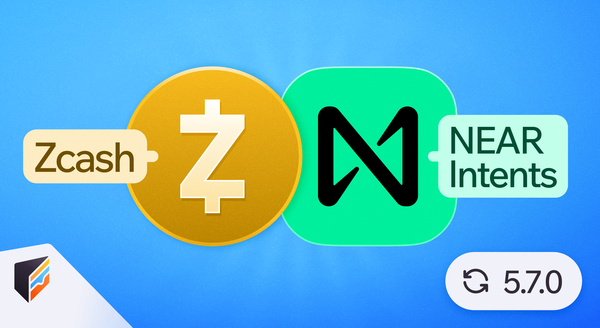From FBI Raids to $9 Billion Vindication
"Our partnership with ICE marks a major step in bringing prediction markets into the financial mainstream," Coplan posted on X. "But in addition to that, it's a monumental step forward for DeFi."

Less than a year ago, the FBI raided Shayne Coplan's apartment. His crime? Building a prediction market so accurate it made traditional polling look like astrology. Polymarket had correctly called the 2024 election when every mainstream pollster was hedging their bets and producing garbage. Apparently, being right is suspicious when you're disrupting legacy institutions.
Today, the New York Stock Exchange's parent company just invested $2 billion in Polymarket at a $9 billion post-money valuation.
I mean I know a lot of us know the backstory but is there a wilder story arc than getting raided by the FBI to raising $2B from the owner of the NYSE in less than a calendar year? https://t.co/biPFkJiKnc
— Dustin Gouker (@DustinGouker) October 7, 2025
Read that again. The largest exchange company in the world is betting two billion dollars on the platform the feds literally raided because it was "too accurate."
Intercontinental Exchange (ICE), which owns the NYSE, isn't just writing a check. They're distributing Polymarket data to thousands of financial institutions worldwide. They're collaborating on tokenization initiatives. They're signaling that prediction markets aren't some crypto curiosity but the future of how we process information and price risk.
"Our partnership with ICE marks a major step in bringing prediction markets into the financial mainstream," Coplan posted on X. "But in addition to that, it's a monumental step forward for DeFi."
ICE is the one remaining founder-led exchange company, and CEO Jeff Sprecher is all-in on utilizing the NYSE to usher in what he's calling a new financial era of tokenization. This isn't a passive investment. This is institutional capital recognizing that decentralized prediction markets work better than centralized information gatekeepers.
The irony is almost too perfect. Polymarket spent years being dismissed, regulated into near-oblivion, and treated like a threat to democracy. Now the institution that literally represents American financial markets is validating everything Coplan built.
His origin story is the kind of thing that should give hope to every 21-year-old with an idea everyone thinks is stupid. Coplan dropped out of NYU. Spent 2.5 years building with nothing to show for it. Was running out of money when the pandemic hit. He read Robin Hanson's academic literature on prediction markets and thought, "This is too good of an idea to just exist in whitepapers."
"There were a million reasons why it shouldn't work, countless arguments of why not to do it, and the odds were against us, but we had to try," Coplan wrote. "At the onset of the pandemic, I quite literally had nothing to lose."
So he built it. Through regulatory hostility, through being forced to restrict U.S. users for years, through an FBI raid that looked more like intimidation than investigation. And now ICE is paying $2 billion to be part of what he's creating.
Prediction market enthusiasts are having a field day with this one.
Polymarket + NYSE is a regime change. $2B investment means there's a before and after now for prediction markets.
— Haseeb >|< (@hosseeb) October 7, 2025
We're not in the kiddie pool anymore. Watch this space. https://t.co/Brg0daNDOL
Trump once said, "We're gonna win so much, you may even get tired of winning. And you'll say, 'Please, please. It's too much winning.' And I'll say no it isn't. We have to keep winning." That quote is making the rounds again, and honestly, it fits. Polymarket secured CFTC approval last month after acquiring a licensed derivatives exchange. Now the NYSE is investing $2 billion. The momentum is absurd.
First one, then many. Congratulations to @Polymarket and @shayne_coplan on the milestone today, I began this edit last year and keep layering in each new headline. Until the next one🫡 pic.twitter.com/d7dSl67zyI
— Fhantom Bets (@FhantomBets) October 7, 2025
For young developers watching this unfold, Coplan's message is simple: "Bold ideas are everywhere, hidden in plain sight. It just takes someone crazy enough to spend their life willing it into existence. That's entrepreneurship: willing things into existence."
Polymarket had secured an undisclosed investment from 1789 Capital in August, a venture capital firm backed by Donald Trump Jr. The regulatory environment under the Trump administration has been markedly different from the Biden years. Regulators have eased oversight on nascent sectors like event contracts and crypto, which probably explains why Polymarket can now operate freely in the U.S. after being effectively banned for years.
The platform lets users wager on outcomes across sports, entertainment, politics, and economics. Want to bet on when the government shutdown ends? There's a market for that. Taylor Swift's least-streamed song? Someone's pricing that. Every rumor, every prediction, every piece of uncertainty gets a price. And ICE wants that data flowing into traditional financial markets.
"The real prize for ICE is not just clearing contracts but monetizing the data, selling odds as sentiment factors alongside rates and credit where every rumor pays a fee," Michael Ashley Schulman, partner and CIO at Running Point Capital Advisors, told Reuters.
That's the actual innovation here. Prediction markets aren't gambling. They're information aggregation mechanisms that are demonstrably better at forecasting than expert opinion, polls, or traditional analysis. When you force people to put money behind their beliefs, bullshit evaporates fast. What's left is signal.
ICE sees this. They're not investing in Polymarket despite its accuracy. They're investing because of it.
"The past two years have been surreal," Coplan wrote. "Going from a write-off to creating a category, watching our vision become a reality."
From FBI raid to $9 billion valuation in under a year. From being forced out of the U.S. market to partnering with the New York Stock Exchange. From regulatory pariah to financial mainstream.
Sometimes the crazy ones win. Sometimes the ideas everyone dismisses turn out to be exactly right. Sometimes you just need to be stubborn enough to keep building while everyone tells you to stop.
"I'm getting to live my wildest dreams, seemingly against all odds, and I don't take it for granted," Coplan concluded. "The best is yet to come."
Que sera, sera indeed.








